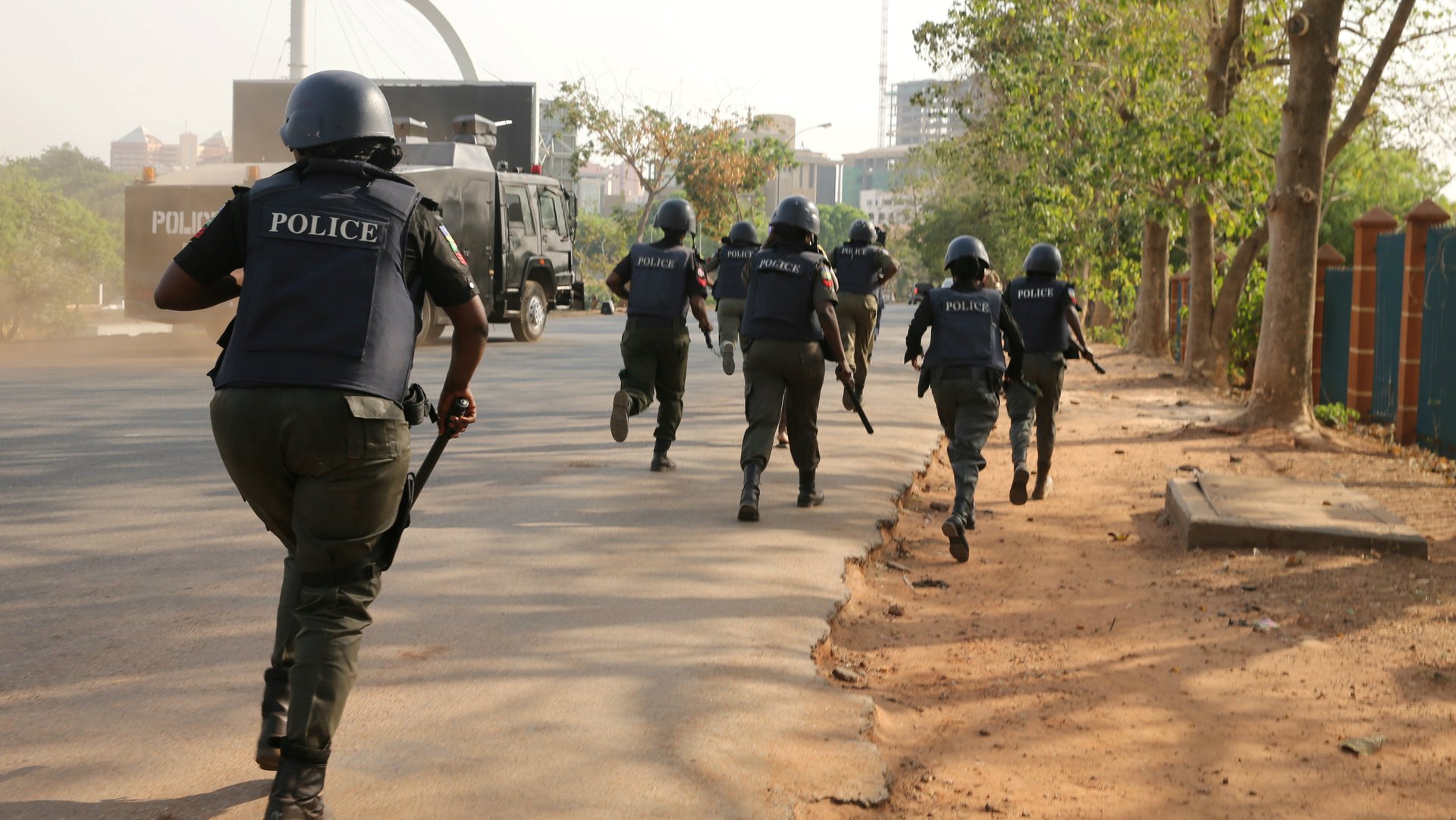Nigeria, DR Congo, Kenya and Uganda have the world’s worst police forces
The already-sullied reputation of some of Africa’s largest police forces is in for more beating.


The already-sullied reputation of some of Africa’s largest police forces is in for more beating.
Of 127 countries measured in the 2016 World Internal Security and Police Index, Nigeria’s police force ranks as the worst, just below DR Congo, Kenya and Uganda to make up the bottom four.
The index, a collaboration between the International Police Science Association and the Institute for Economics and Peace, focuses on how much resources each nation devotes to internal security, whether the resources are used in an effective manner and whether the public view the police favorably. The index also assesses the current threats to internal security in each country.
Across all regions, North America and Europe show the highest level of police responsiveness to internal security issues while sub-Saharan Africa averaged the most internal security issues as security providers in the region are “under-resourced and stretched by terrorist organizations and insurgencies.” Nigeria’s scores ranked in the bottom 10 countries for all indicators measured.
Nigeria has only 219 police officers for every 100,000 citizens—below the index median of 300 and the sub-Saharan Africa average of 268, according to the report. Private security doesn’t fill much of that gap either with only 71 personnel per 100,000 Nigerians—one of the five lowest rates globally. That thin workforce has been stretched even more by the Boko Haram insurgency in the northeast, rampaging herdsmen in the middle belt region and the rampant kidnapping in Nigeria’s south.
Kenya and the Democratic Republic of Congo, both of which rank in the bottom five globally, face similar issues. Over the past year, with political tensions high, Kenyan police have faced allegations of carrying out more extrajudicial killings than anywhere else in Africa. Police forces in DR Congo have been tasked with containing several riots which have broken out across the country in response to president Joseph Kabila’s decision to remain in office.
Kenya and DR Congo have 99 and 100 police officers per 100,000 citizens respectively. Uganda is marginally better with 110 police officers per 100,000. Last year, a government survey found that Ugandans believe the police force is the country’s most corrupt institution.
Corruption is a key issue for Nigeria’s police force as well as shown by the report: 81% of respondents admitted to paying a bribe to a cop in the past year and police officers were found likely to “to use their public positions for private gain.” Public trust in the police is dire as less than 1% of thefts were reported to police officers, the report says.
For its part, Nigeria’s police force has rejected the report as “unempirical and absolute falsehood” which “should be disregarded and discountenanced.” Earlier this year a Nigerian government survey also showed police officers were the most likely of all civil servants to solicit and collect bribes. The police said the report was “entirely misleading“.